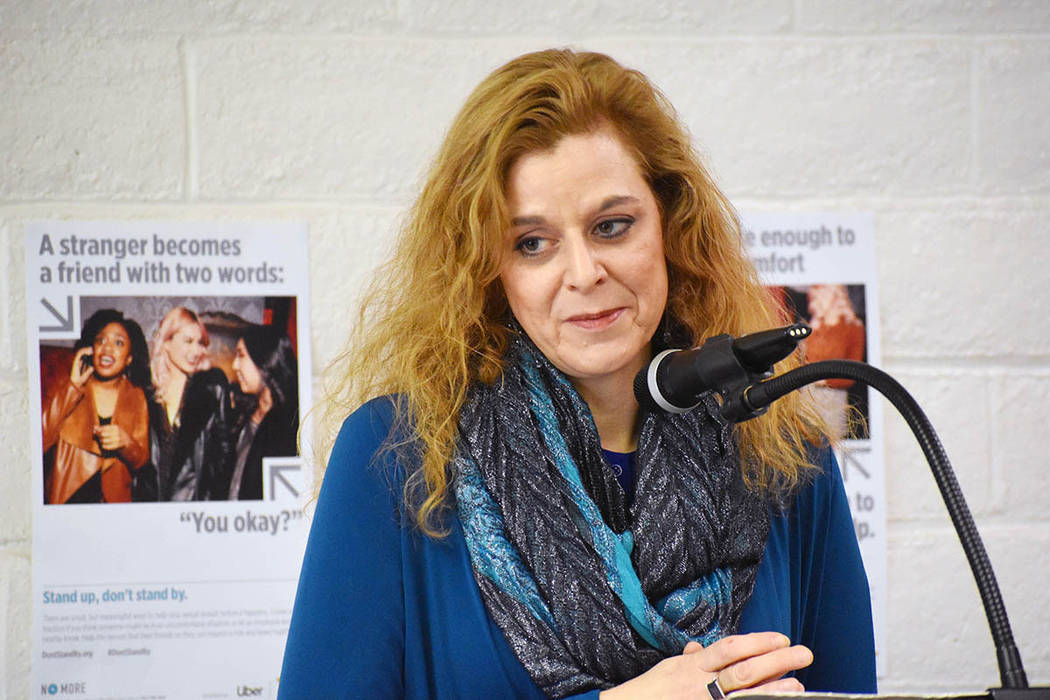Rape center expands services in new pact with Las Vegas police

Las Vegas police and the local rape crisis center have teamed up to provide additional advocacy services at each police station in the valley after seeing an increase in sexual assault survivors coming forward.
Over the last couple of years, the center has seen more survivors seeking services for assaults that happened weeks, years and sometimes even decades earlier.
Since late July, every one of the Metropolitan Police Department’s area command stations have had two trained advocates — including at least one Spanish speaker — from the Rape Crisis Center of Southern Nevada.
The new partnership, announced Friday, comes nearly a year after pilot testing in Metro’s northwest area command, according to Daniele Staple, executive director of the center, which offers free counseling and crisis support for sexual assault survivors. It also operates a 24/7 crisis hotline, which can be reached at 702-366-1640.
Staple said Friday that Metro and the crisis center began reviewing the Police Department’s response to sexual assault crimes when the number of victims coming forward had begun steadily increasing in light of the #MeToo movement — a campaign that saw its rise in 2017 as tens of thousands of survivors flooded social media with the hashtag #MeToo in the wake of sexual abuse allegations against movie producer Harvey Weinstein.
“The conversation around sexual assault is very different than it used to be, and so generally what we’re seeing in our calls, support groups and individual counseling is that a lot of people are now coming forward who didn’t feel comfortable reaching out for help at the time,” Staple said. “One of the areas of improvement that we jointly identified with Metro was that when people were delayed reporting at police stations, there wasn’t a mechanism in place for advocates at the area commands.”
Now, when survivors walk into their local police station to report an assault or rape, Metro will dispatch one of its assigned advocates to the station to help walk the survivor through the next steps and offer available resources.
Approaching 2019, right around the time the pilot program began, the crisis center’s demand for services spiked, and in February, the organization moved into a larger office space to better serve the community, according to Staple.
During the first half of 2019, compared with the same period last year, the center saw an 84 percent jump in support group participation, a 32 percent increase in counseling clients and a 15 percent jump in calls to the organization’s hotline.
“The numbers speak volumes,” Staple said in a statement. “Increased calls to our hotline, increased participation in our support groups and increases in requests for individual counseling sessions say it all. We are so glad that the expanded space is being fully utilized to serve hundreds on a monthly basis.”
Contact Rio Lacanlale at rlacanlale@reviewjournal.com or 702-383-0381. Follow @riolacanlale on Twitter.